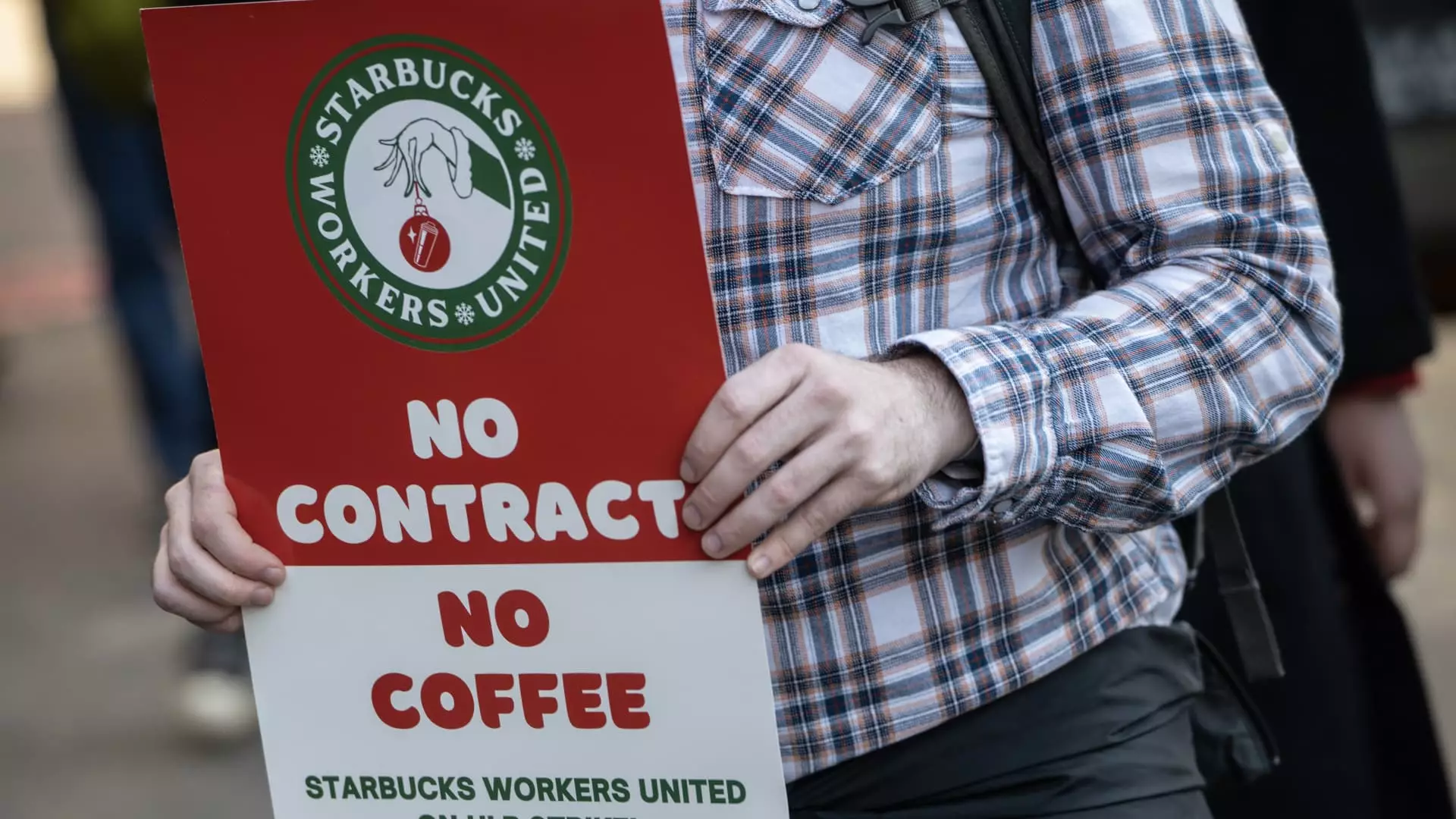As the festive season approaches, a significant development has emerged in the coffee industry, particularly concerning Starbucks. Baristas across various locations, including key urban centers like Los Angeles, Chicago, and Seattle, are planning to strike in protest of stagnant wages and working conditions. The timing of this action, leading up to Christmas Eve, is particularly strategic, intending to capture the attention of both the public and the company as demand for holiday-themed beverages is at its peak. Starbucks Workers United claims that the corporation is “backtracking on our promised path forward,” signaling a growing frustration with the lack of progress in negotiations.
The impending strikes are likely to disrupt operations, leading to longer wait times and potentially empty shelves of seasonal merchandise. As many Americans take time off to prepare for the holidays, the demand for Starbucks products is expected to surge. Consequently, this may create a perfect storm where the combination of increased customer volume and reduced staffing due to strikes could leave patrons disappointed at one of their favorite coffee chains. The holiday season is critical for retailers like Starbucks, making these disruptions particularly impactful.
Earlier this year, there appeared to be a thaw in relations between Starbucks and the union, with both parties agreeing on a foundational framework designed to facilitate a collaborative approach to bargaining. However, recent events indicate a reversion to a contentious atmosphere. Following a series of negotiations, the mood soured during a recent session where the union expressed frustration over Starbucks’ lack of substantial proposals regarding pay increases despite a pressing need for better wages. Rather than addressing the union’s demands, Starbucks responded with offers perceived as inadequate, contributing to the baristas’ authorization of a strike.
The union’s request for a staggering 64% immediate wage increase and 77% over a three-year contract reflects the dissatisfaction among workers who feel undercompensated for their labor. Conversely, Starbucks maintains that their proposed annual pay increases of 1.5% are in line with what the company can afford amidst declining sales. This contrast between the demands of the baristas and the company’s financial realities highlights the ongoing challenge of balancing corporate sustainability with fair worker compensation. As sales figures dip and competition in coffee retail intensifies, the adjustment of wages becomes a focal point of contention.
Starbucks baristas are not alone in their struggle; Amazon workers at several facilities have also initiated strikes, amplifying the message that workers across various sectors are seeking better treatment and more equitable pay. The convergence of these movements appears to signal a larger trend of labor activism, particularly during a season so crucial for retail success. As strikes unfold, the impacts will likely resonate beyond Starbucks, influencing the broader market dynamics and labor relations industry-wide.
As the days progress toward Christmas, the outcome of these strikes may not only redefine the working conditions for Starbucks employees but could also lead to wider labor movements demanding equitable treatment in the workforce. The story of Starbucks serves as an emblematic case of the ongoing negotiations between the rights of workers and the operational realities of large corporations. The evolving landscape of labor will continue to shape the dialogue as we move into 2024.

Leave a Reply